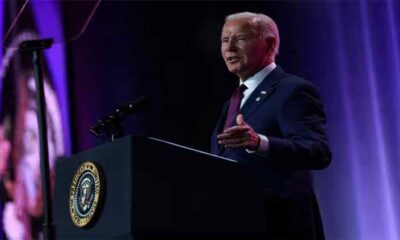British inflation defied expectations of a slowdown to hold at 8.7 per cent in May, putting yet more pressure on the Bank of England a day before it is predicted to raise interest rates for the 13th time in a row to tame stubborn price growth.
Markets increased their bets on further rate rises following Wednesday’s official figures, which showed underlying inflation rose to its highest since 1992.
The headline figure means British inflation is once again the fastest of any major advanced economy.
The numbers are also uncomfortable for Prime Minister Rishi Sunak – who has pledged to halve inflation over the course of this year before a probable 2024 election – and are likely to increase mortgage costs for millions of homeowners.
Economists polled by Reuters had forecast that the annual consumer price inflation rate would drop to 8.4pc in May, moving further away from October’s 41-year high of 11.1pc.
“May’s CPI figures ratchet up the pressure on the Monetary Policy Committee to increase Bank Rate substantially further over the coming months,” Samuel Tombs, chief UK economist at Pantheon Macroeconomics, said.
Sterling briefly jumped against the US dollar and the euro after the figures were released and two-year government bond yields – which are sensitive to interest rate expectations – rose to their highest since July 2008.
Markets now see a 40pc chance that the BoE will raise interest rates by half a percentage point to 5pc on Thursday, rather than the quarter-point move previously expected. They see a 60pc chance of rates reaching 6pc by December.
“Today’s figures strengthen the case for the government to stick to its guns,” finance minister Jeremy Hunt told reporters.
“If you look at what’s happening in other countries, you can see that rises in interest rates do bring down inflation over time, that will happen here,” he added.
British inflation started to pick up in 2021, when many economies faced supply-chain bottlenecks as they emerged from the COVID-19 pandemic, and accelerated sharply after Russia invaded Ukraine in February 2022, sending natural gas prices soaring across Europe.
Inflation has been slower to fall in Britain than elsewhere, however, partly due to the timing of energy subsidies, but increasingly too as a result of big price rises apparently becoming embedded across swathes of the economy.
The Office for National Statistics said core inflation – a measure which excludes volatile food, energy, alcohol and tobacco prices, and which the BoE views as a good guide to underlying price pressures – unexpectedly rose to 7.1pc from 6.8pc, its highest since March 1992.
Another measure of underlying pressures, services price inflation, which is heavily influenced by fast-rising wages and Britain’s tight post-pandemic job market – also reached its highest since 1992 at 7.4pc.
“The cost of airfares rose by more than a year ago and is at a higher level than usual for May,” Office for National Statistics chief economist Grant Fitzner said. “Rising prices for second-hand cars, live music events and computer games also contributed to inflation remaining high.”
Food and drink price inflation dropped slightly to 18.3pc from April’s 19.0pc.
Paul Dales, chief UK economist at Capital Economics, said he now forecast that the BoE would raise interest rates by half a percentage point on Thursday after the latest numbers.
“The problem is that the recent surge in core inflation and the re-acceleration in wage growth shows that domestic inflationary pressures are still strengthening. This suggests the Bank may have more work to do than the Fed or ECB,” Dales said.
Last month the BoE forecast inflation would drop to just over 5pc in the final quarter of this year and fall below its 2pc target in early 2025.
There may be some relief on the horizon, however, as producer price inflation slowed much more sharply than economists had expected.
Prices charged by manufacturers rose by 2.9pc in the 12 months to May, down from an increase of 5.2pc in April and the smallest rise since March 2021.
Post Views: 144


 Fashion3 months ago
Fashion3 months ago
 World3 months ago
World3 months ago
 World3 months ago
World3 months ago
 Sports2 months ago
Sports2 months ago
 Sports2 months ago
Sports2 months ago
 World3 months ago
World3 months ago
 Business2 months ago
Business2 months ago
 Tech3 months ago
Tech3 months ago






















